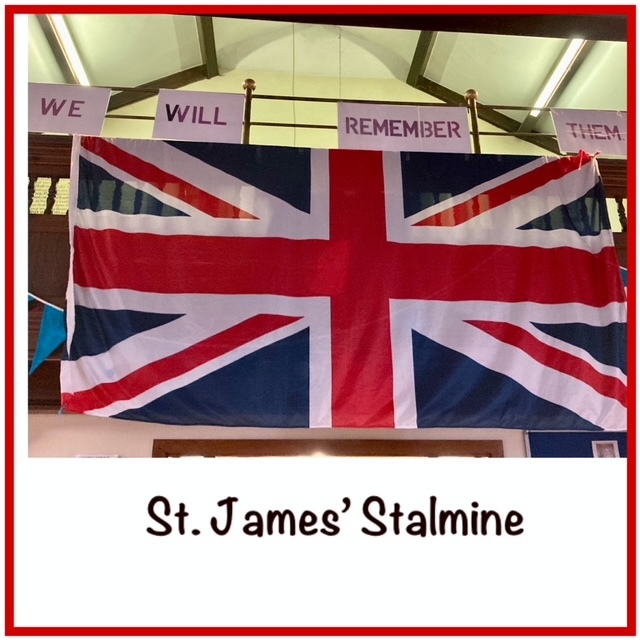
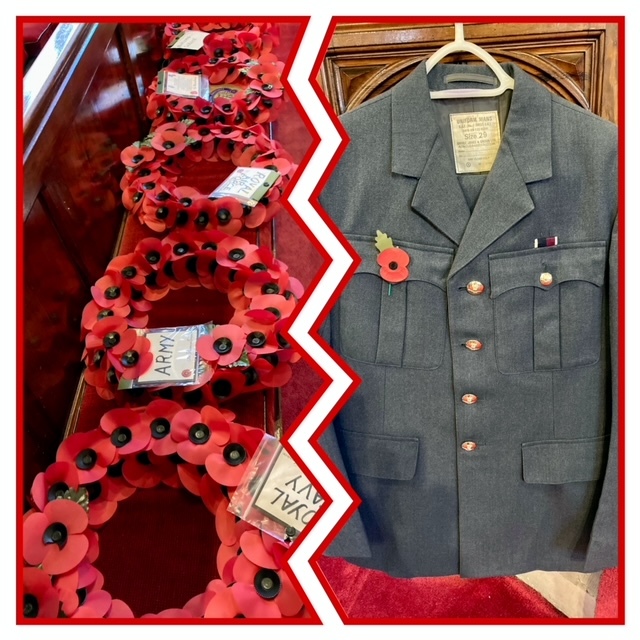
“Greater love has no-one than this,
to lay down one’s life
for one’s friends.”
John – 15: 13
At the 11th hour, on Remembrance Sunday 2023, the UK fell silent to remember all those who have lost their lives in armed conflicts. The congregation at St. James’ Stalmine, joined the nation in prayer and reflection, observing the two minute silence following a poignant bugle sounding ‘The Last Post’.
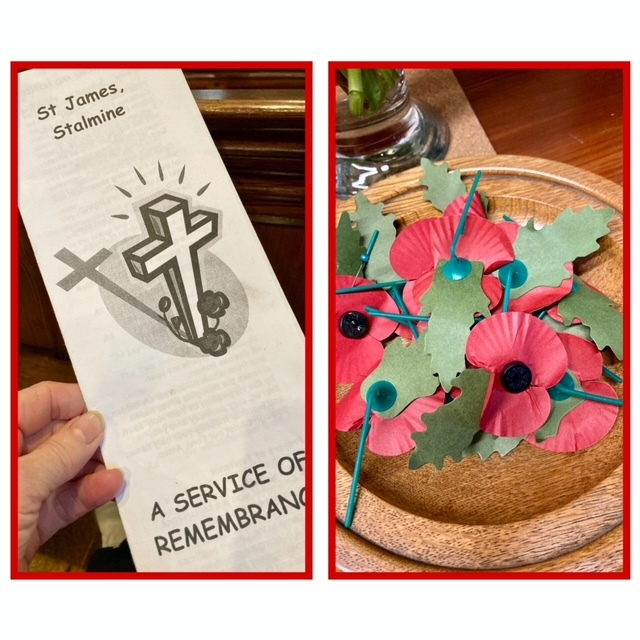
Wreaths were laid at the War Memorial on behalf of the Army, the Royal Navy, the Royal Air Force, the Women’s Institute, the National Coastwatch, the Parish Council, the British Legion, the Nursing Services, the Fire Service, the Uniformed Organisations and our own Toddler Group – Little Fishes. Fluttering poppy petals fell from the church balcony, a visual symbol of the countless lives lost in conflict.
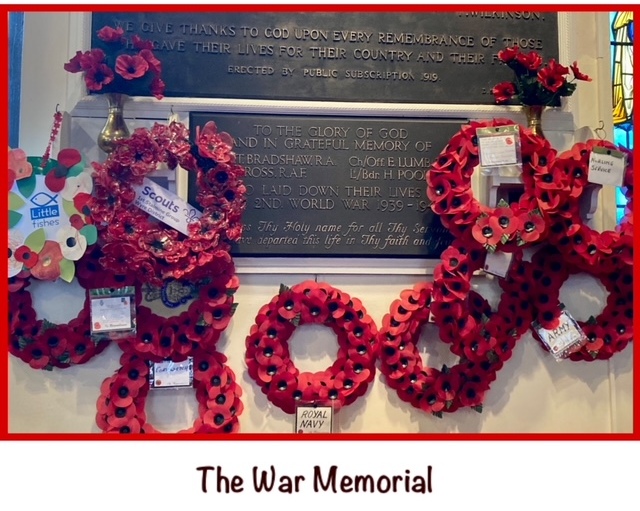
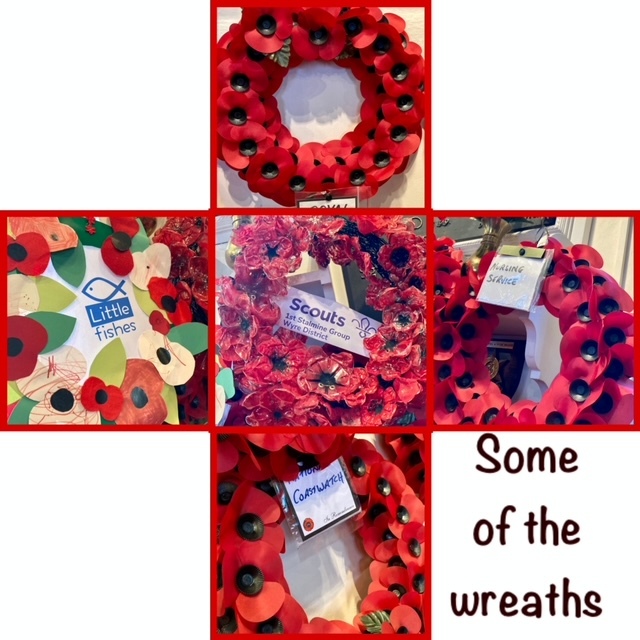
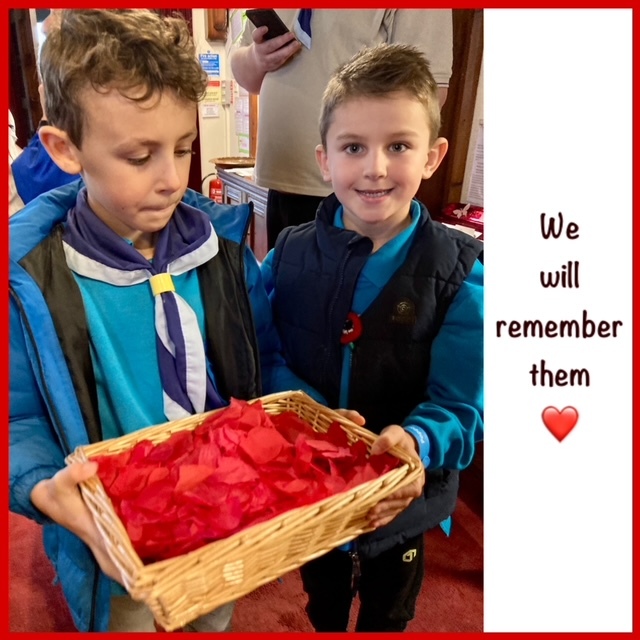
Familiar words resounded throughout the Communion Service, challenging our understanding of what love means: the supreme love Jesus has for each of us, laying down His life, that we might have eternal life, the love demonstrated by all those who paid the ultimate price, and lost their lives through conflict and the love we are encouraged to show on a daily basis in our Christian lives.
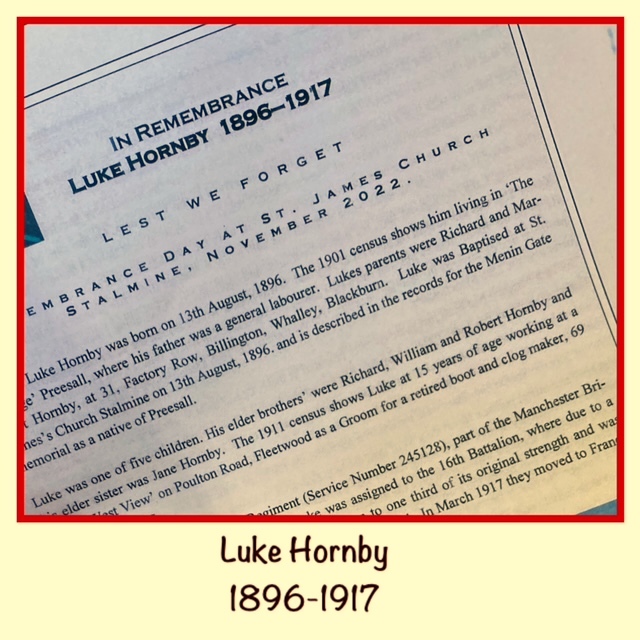
Today, we paid tribute to a young Preesall man, Private Richard Luke Hornby, who was baptised at St. James’ church Stalmine, on 13th August 1896. He enlisted in the Manchester Regiment, part of the Manchester Brigade of the East Lancashire Division. Luke was assigned to the 16th Battalion and was evacuated from Gallipoli to Egypt to defend the Suez Canal before moving to France and being involved in actions on the Western Front.
Aged only 21, he was killed on 31st July, 1917 during an assault towards the infamous Menin Road.
His untimely death, like millions more, resonates through the words of Canadian physician, Lieutenant Colonel John McCrae who wrote the much quoted poem, ‘In Flanders Fields’, having presided over the funeral of his fellow soldier and friend.
In Flanders Fields
In Flanders fields the poppies blow
Between the crosses, row on row,
That mark our place; and in the sky
The larks, still bravely singing, fly
Scarce heard amid the guns below.
We are the Dead. Short days ago
We lived, felt dawn, saw sunset glow,
Loved and were loved, and now we lie,
In Flanders fields.
Take up our quarrel with the foe:
To you from failing hands we throw
The torch; be yours to hold it high.
If ye break faith with us who die
We shall not sleep, though poppies grow
In Flanders fields.
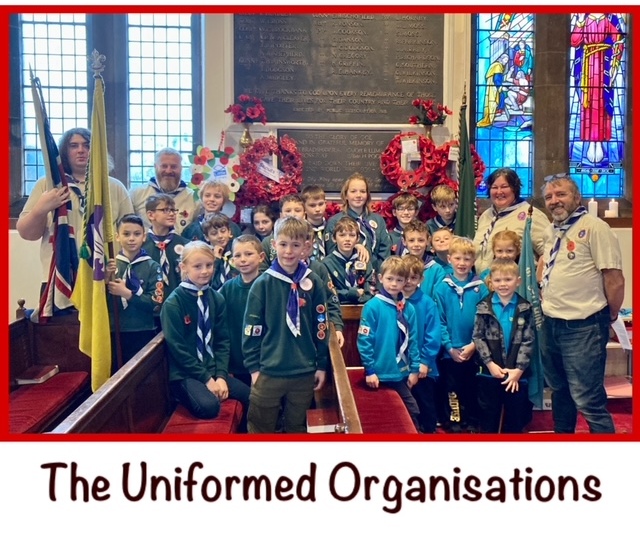
The Uniformed Organisations were out in force. They presented their flags with dignity, laid a wreath which they had made from recyclable materials, read a poem about poppies and also explained the significance of the flowers.
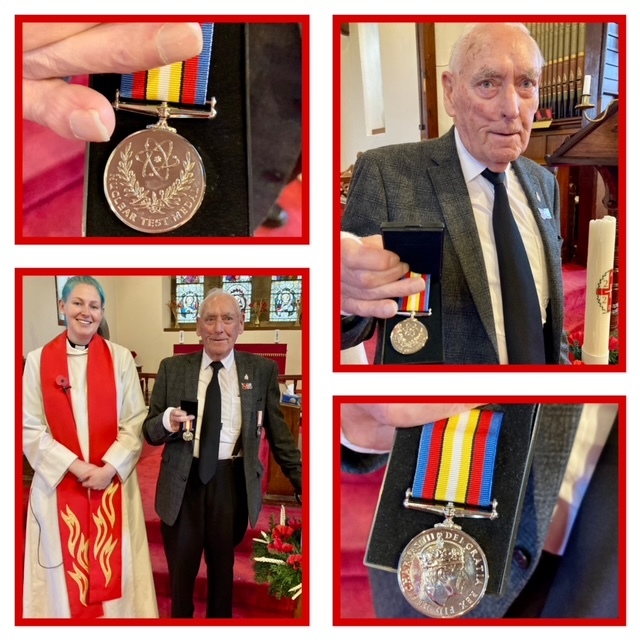
A special presentation was made during the service to Mr. James Kennedy. In 1952, he was one of 22,000 servicemen who witnessed the test detonation of the British Government’s Atomic Bomb on an island off Western Australia. Today, only 1,500 of those men remain.
For Jim, the presentation was a very proud moment, which he had only waited 71 years for!
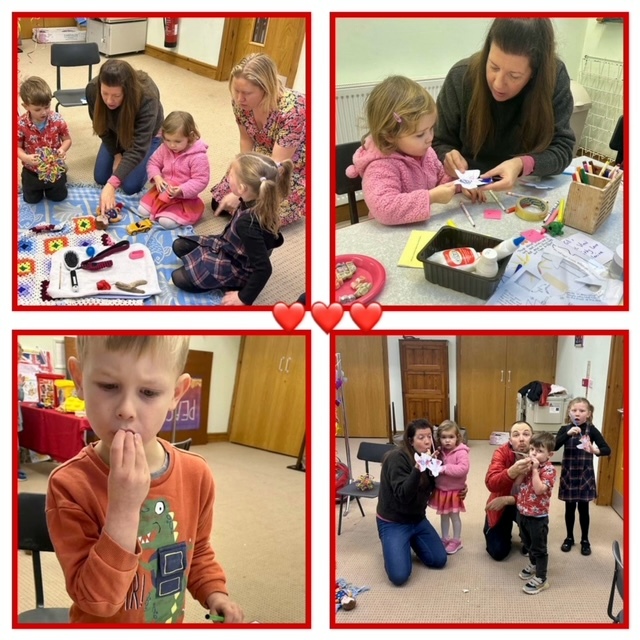

The little ones enjoyed their time in the Children’s Sunday Club during part of the service.
They blew some bubbles to remember people they miss, made some flying peace doves and learned about Peace Babies (later re-branded as Jelly Babies). In addition, they made their own poppies which they happily shared at the end of the service.
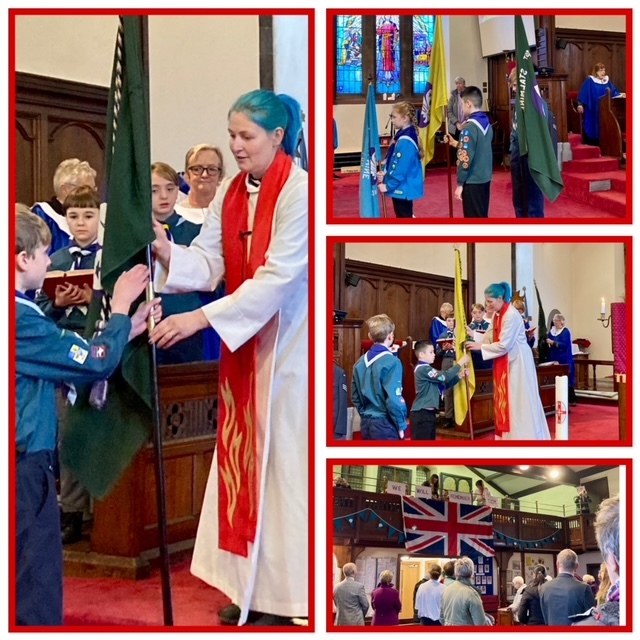
The young, the elderly and all those in between committed themselves to remembering all those who have lost their lives in conflict.
“At the going down of the sun, and in the morning,
We will remember them.”
Laurence Binyon – published on 21st September 1914